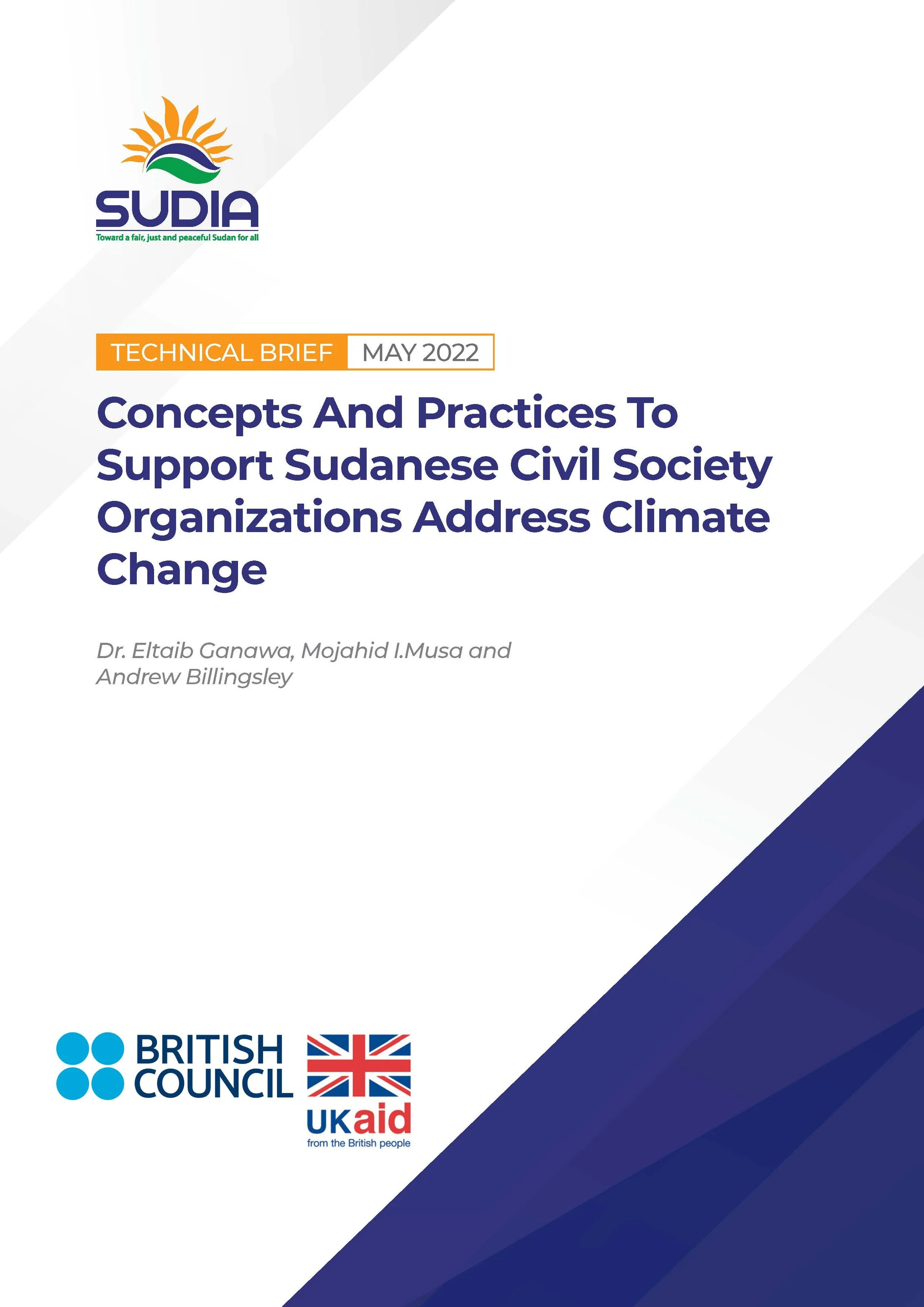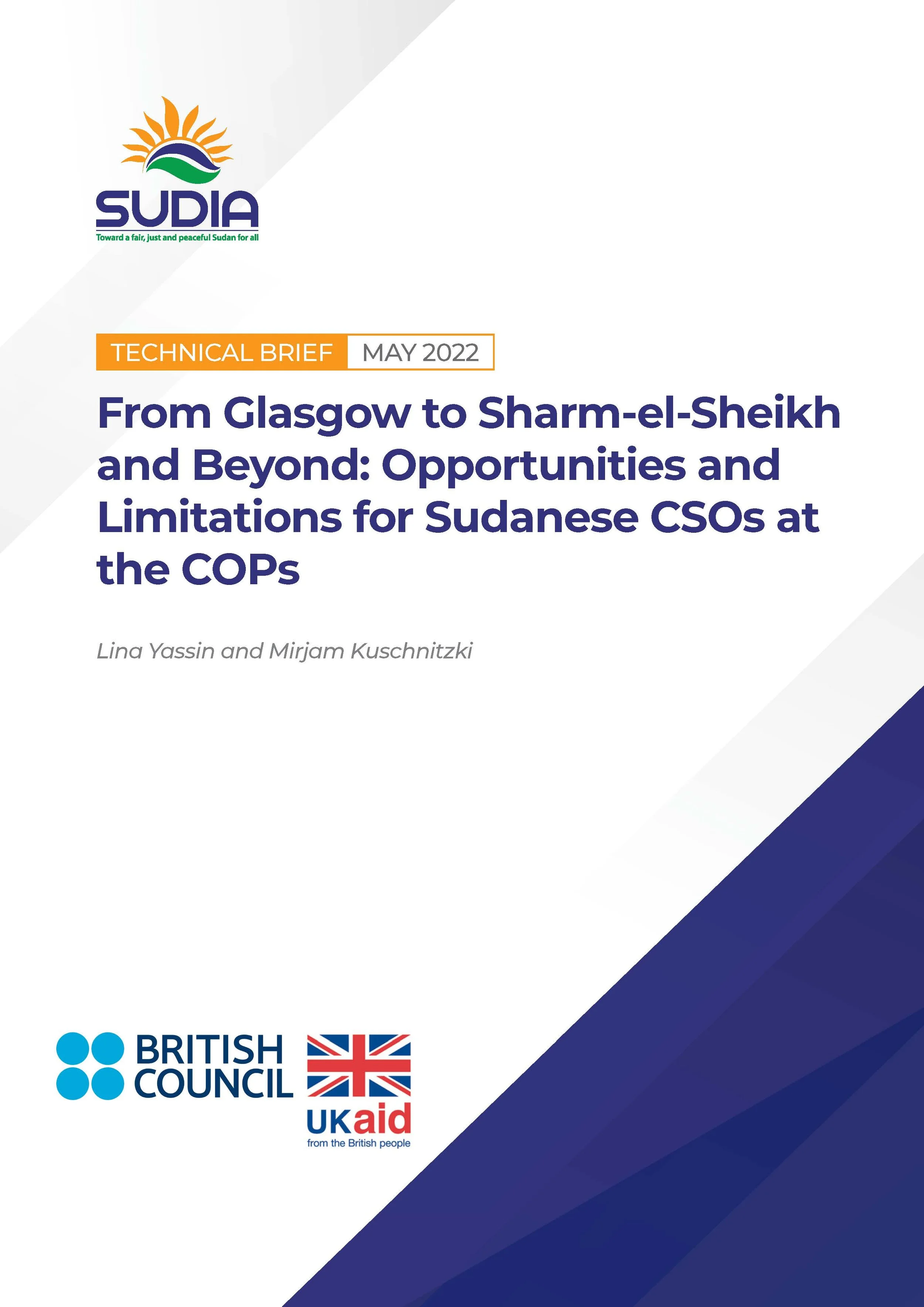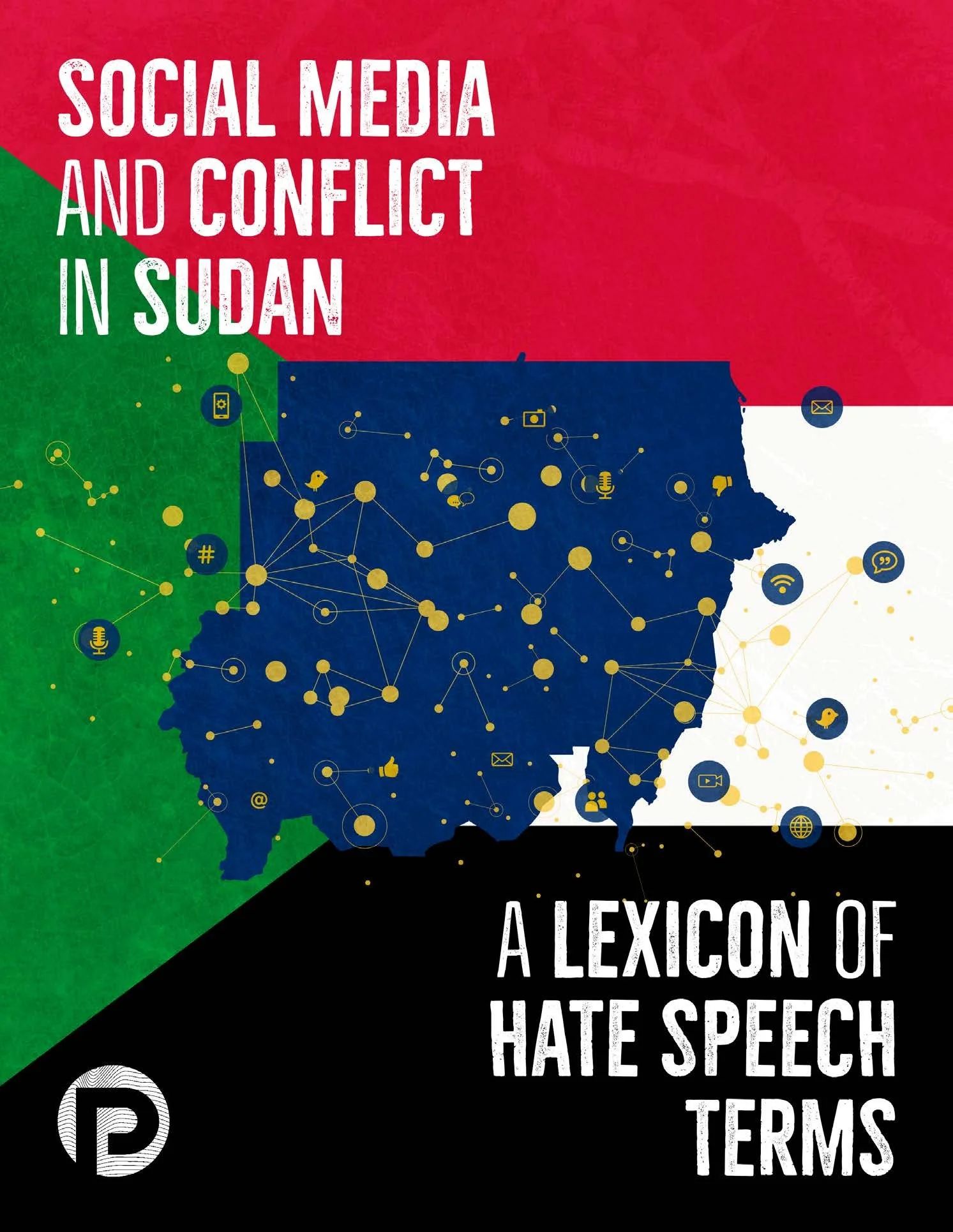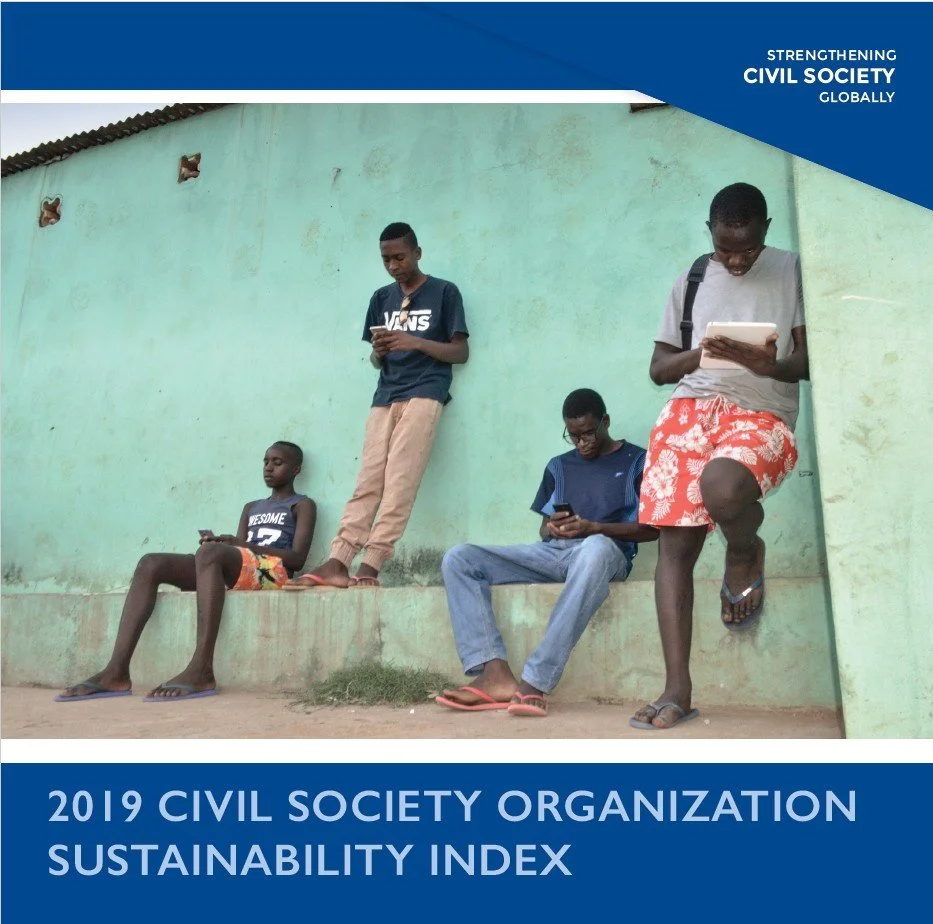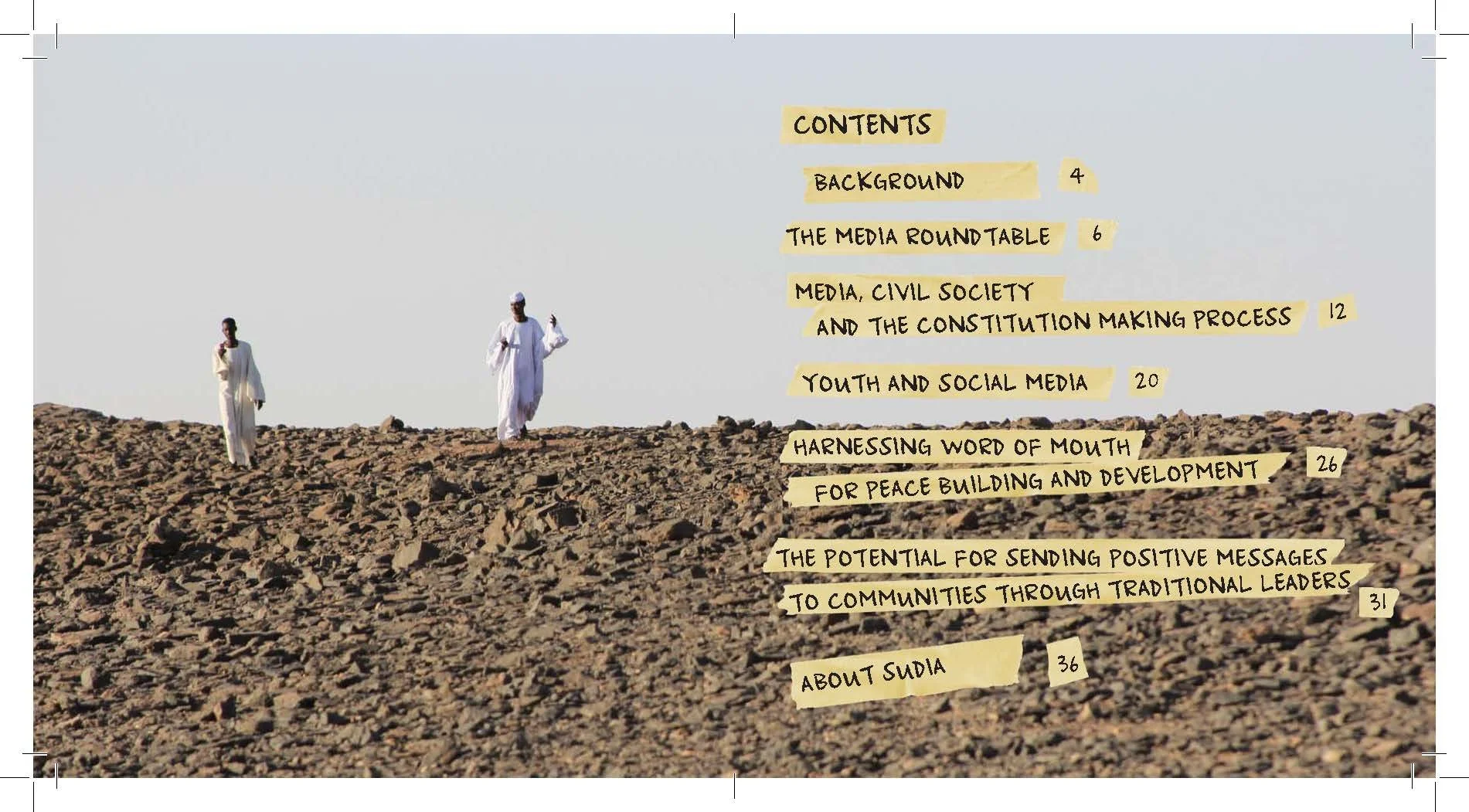
Your resource gateway: Discover our published studies, reports, and other materials.
Welcome to our resource hub, a dedicated space for sharing the research, studies, and reports produced by SUDIA. Here, you will find a curated collection of reports, analyses, and publications aimed at informing and engaging a broad audience. Our commitment to transparency and knowledge-sharing drives us to make these resources easily accessible, fostering informed discussions and enhancing the relevance and impact of our work.
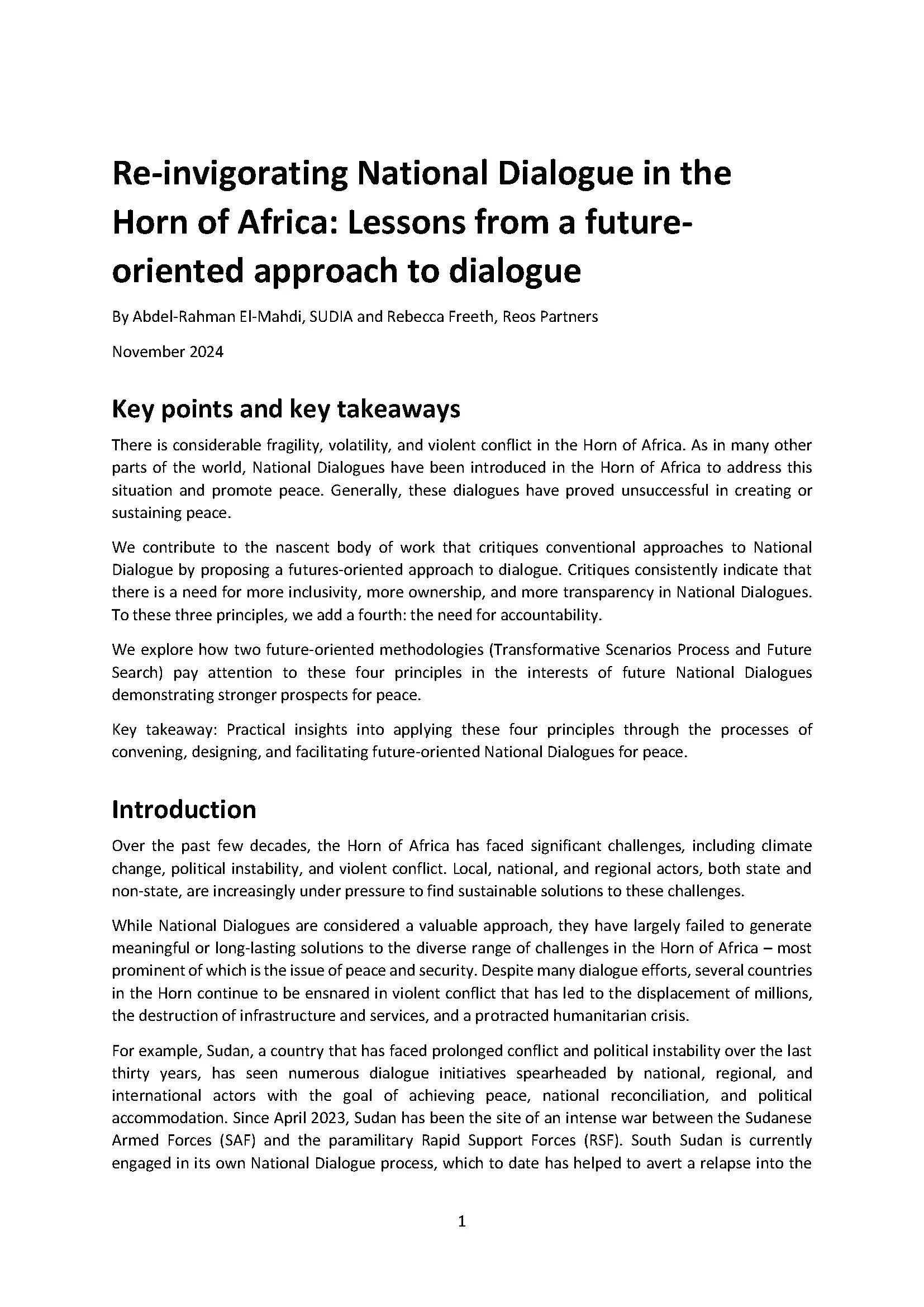
2024 - This reflection brief, authored by Abdel-Rahman El-Mahdi (SUDIA Managing Director), and Rebecca Freeth, examines the challenges and failures of National Dialogues in the Horn of Africa, proposing a futures-oriented approach to improve dialogue outcomes. The brief critiques conventional dialogue methods, highlighting the need for inclusivity, shared ownership, transparency, and accountability. It introduces two methodologies, Transformative Scenarios Process (TSP) and Future Search, which focus on future-oriented dialogue to foster peace and transformation. The authors share practical insights and examples from their experiences, emphasizing the importance of local convenors and robust dialogue design and facilitation. The brief concludes with ongoing efforts to apply these methodologies in Sudan, Somalia, and the broader Horn of Africa region, aiming to address complex challenges and promote sustainable peace.
2022 - This technical brief, published in May 2022 by Abdel-Rahman El Mahdi and Rogaia Eljailani, examines the relationship between the Sudanese government and civil society organizations (CSOs) regarding climate change. It aims to boost CSO involvement in climate issues and the implementation of the UNFCCC in Sudan. The brief outlines Sudan's climate-change framework, the role of CSOs in environmental protection, and identifies challenges while offering recommendations for better government-CSO collaboration. It is supported by the UK Foreign and Commonwealth Development Office (FCDO) and the British Council in Sudan.
2022 - The technical brief, “Concepts and Practices to Support Sudanese Civil Society Organizations Address Climate Change”, provides an overview of some of the many concepts and practices available to Sudanese CSOs as they seek to adapt to and mitigate climate change. It highlights the challenges they face in making their participation impactful and effective. This brief was produced by SUDIA as part of a series focused on climate change and civil society in Sudan. The series aims to provide knowledge and information to strengthen the engagement of civil society in climate change issues and to help achieve the goals of the United Nations Framework Convention on Climate Change in Sudan.
2022 - This technical brief, titled “From Glasgow to Sharm-el-Sheikh and Beyond: Opportunities and Limitations for Sudanese Civil Society Organizations at COPs,” examines the involvement of Sudanese civil society organizations (CSOs) in the Conference of the Parties (COP) meetings. It highlights the challenges they face in making their participation impactful and effective. This brief was produced by SUDIA as part of a series focused on climate change and civil society in Sudan. The series aims to provide knowledge and information to strengthen the engagement of civil society in climate change issues and to help achieve the goals of the United Nations Framework Convention on Climate Change in Sudan.

2021 - The report "Durable Solutions & Baseline Analysis" highlights challenges faced by displacement-affected communities in Assalaya, Yassin, and Sheiria, East Darfur. Key findings include: IDPs constitute about 7% of the population, primarily young and female-headed. Livelihoods rely on unsustainable crop farming, and housing issues arise from rented land and ownership disputes. Safety concerns include robbery and low reporting. Access to services like education and healthcare is poor, with barriers of cost and distance. Community involvement is lacking, especially among women and nomads. The report calls for community-driven planning and evidence-based interventions for peacebuilding.

2021 - The report "Durable Solutions & Baseline Analysis" for the UN Peacebuilding Fund examines challenges faced by internally displaced persons (IDPs), returnees, and non-displaced populations in Tawila, North Darfur. Key findings reveal a young population with many female-headed households, agriculture as the main livelihood, and significant issues with land access and security. Safety concerns are high, and access to essential services is limited. The report highlights the importance of addressing security, land tenure, and socio-economic vulnerabilities while emphasizing community involvement in decision-making for effective peacebuilding and durable solutions.

2020 - This technical brief analyzes Sudan's Voluntary and Humanitarian Works Act of 2006 (HAC Act) and its impact on civil society organizations (CSOs). It highlights the Act's restrictive measures, such as mandatory registration, annual re-registration, government control over funding, and broad discretionary powers to de-register organizations. These provisions violate international standards for freedom of association as outlined in the International Covenant on Civil and Political Rights (ICCPR) and the African Charter on Human and Peoples' Rights (ACHPR). The brief recommends reforms to create an enabling environment for CSOs, including voluntary registration, simplified processes, and independent judicial review of sanctions. It provides examples of best practices from other countries to guide Sudan's legal framework reform efforts.
2020 - The "Civic Space in Sudan Annual Report 2020" by SUDIA examines the state of civic space in Sudan, focusing on four key pillars: freedom of information and expression, rights of association and assembly, non-discrimination and inclusion, and citizen participation. The report highlights improvements and ongoing challenges in these areas, influenced by the 2019 revolution and subsequent transitional government efforts. It includes findings from surveys, focus group discussions, and background research, and provides recommendations for government, civil society, and international partners to enhance and protect civic space in Sudan.
2020 - The report titled "Social Media and Conflict in Sudan: A Lexicon of Hate Speech Terms," led by Achol Jok Mach and Althea Middleton-Detzner with Will Ferroggiaro as the lead author, examines hate speech in Sudan's online discourse. Produced by the PeaceTech Lab, Andariya, and the Sudanese Development Initiative (SUDIA), it identifies and analyzes offensive terms used on social media during Sudan's political transition, providing their definitions and suggesting alternatives to reduce their impact.

2020 - The 2020 CSO Sustainability Index for Sudan assesses the sustainability of civil society organizations following the April 2019 revolution. The report highlights advancements during Prime Minister Abdalla Hamdok's government, including the U.S. lifting Sudan's terrorist state status and a peace agreement with rebels. Overall CSO sustainability improved slightly to a score of 5.4, driven by expanded civic space and advocacy efforts, but financial viability worsened due to economic challenges. While the legal environment showed some signs of reform, CSOs still face staffing and resource issues, emphasizing the need for continued support and reforms.
2019 - The 2019 Civil Society Organization Sustainability Index for Sudan, published in September 2020, analyzes the sustainability of civil society organizations (CSOs) amidst significant changes in 2019, including the revolution that ended President Omar al-Bashir's regime. It evaluates CSO sustainability across various dimensions like legal environment, organizational capacity, and advocacy. The report highlights improvements in advocacy, public image, and the legal environment but notes that financial viability and service provision have not changed. It also points out challenges faced by CSOs, such as restrictive laws and financial constraints, and emphasizes their role in promoting political and social change in Sudan.

2018 - This report by Dominique Verdugo evaluates the ecotourism potential of Dungonab Bay and Mukkawar Island National Park in Sudan. Conducted from November 2017 to March 2018, it highlights community enthusiasm for tourism and identifies opportunities like birdwatching and boat tours. Key recommendations include investing in transport and accommodations, addressing challenges such as visa policies and infrastructure, and focusing on domestic tourism. The report emphasizes sustainable tourism development, community involvement, and the importance of training for local guides and entrepreneurs to ensure positive environmental and social impacts.
2018 - The 2018 Civil Society Organization (CSO) Sustainability Index for Sudan, developed by USAID and implemented by FHI 360 in partnership with the International Center for Not-for-Profit Law (ICNL) and the Sudanese Development Initiative (SUDIA), assesses the strength of Sudan's CSOs across seven dimensions: legal environment, organizational capacity, financial viability, advocacy, service provision, sectoral infrastructure, and public image. The report identifies challenges such as economic decline, restrictive legal frameworks, and limited funding. Sudanese CSOs' overall sustainability score in 2018 was 5.7, indicating major obstacles to their development. The report offers insights for local CSOs, governments, donors, and academics to enhance understanding of Sudan's civil society.
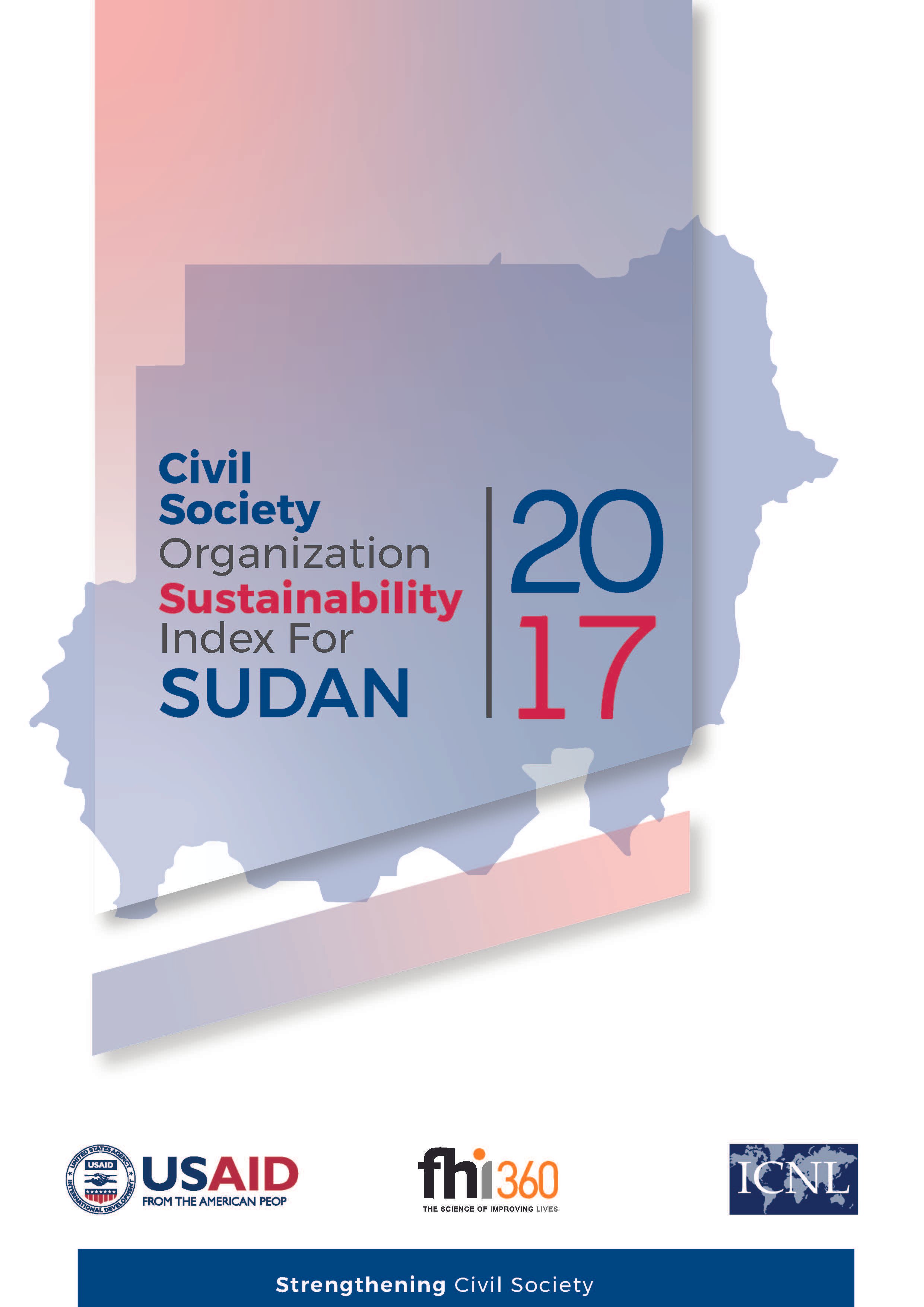
2017 - The 2017 Civil Society Organization (CSO) Sustainability Index for Sudan, developed by USAID and implemented by FHI360, assesses the strength and viability of CSOs in Sudan across seven key dimensions: legal environment, organizational capacity, financial viability, advocacy, service provision, sectoral infrastructure, and public image. The report provides a comprehensive evaluation of the challenges and progress within Sudan's civil society sector, categorizing sustainability into three stages: Sustainability Enhanced, Sustainability Evolving, and Sustainability Impeded. The overall sustainability score for Sudan in 2017 is 5.6, indicating significant impediments. The report aims to inform local CSOs, governments, donors, and academics about the current state and development needs of Sudan's civil society sector.
2016 - The 2016 report on Civil Society Organizations (CSOs) in Sudan highlights significant challenges amidst political and economic turmoil. The legal environment has worsened, with increased restrictions and harassment. While advocacy and service provision efforts remain robust, organizational capacity and financial viability have declined due to reduced funding and support, particularly for independent CSOs. Public perceptions vary, with positive views in rural areas but a systematic government campaign to undermine CSOs' image. Overall, CSOs face substantial obstacles despite some successes in advocacy and community support.
2012 - This booklet summarizes the activities and discussions facilitated by SUDIA aimed at expanding media and civil society opportunities in Sudan. Covering forums from 2011 to 2012, it addresses topics like media engagement, constitution-making, youth and social media, peacebuilding, and the role of traditional leaders in community development. The document outlines challenges, outcomes, and recommendations to promote democracy, inclusion, and growth in Sudan.
2010 - This report, titled "Media and elections in Sudan: Monitoring the coverage of Sudan 2010 elections," analyzes media freedom, access, and diversity during Sudan's 2010 National Elections and the 2011 South Sudan Referendum. Conducted by the Sudan Media and Elections Consortium (SMEC) and funded by the UNDP, it examines three phases: the campaign and voting, the post-election period, and the pre-referendum phase. The report highlights the dominance of the National Congress Party (NCP) and the Sudan People’s Liberation Movement (SPLM) in media coverage, the presence of hate speech, and the media's agenda-setting role, along with recommendations for improving media regulation in Sudan.


